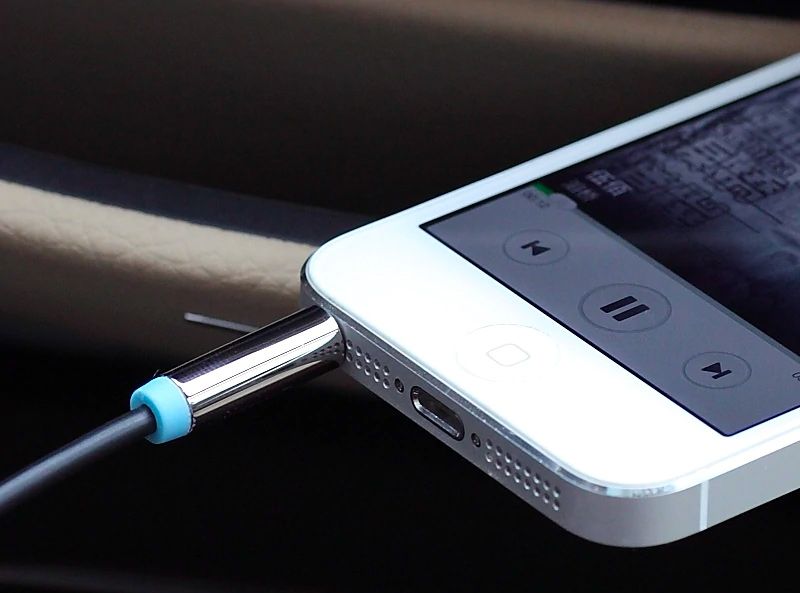In this two-part series, we’re discussing why it’s important to have quality documents for running a high volume of mobile DJ events. Even if your bread and butter are club gigs, anything you can do to better organize your backend for more involved mobile events is a win. Done correctly, great contracts and signed documents help to eliminate stress and worry for you and your clients.
This article is part 1 – focusing on mobile DJ contracts and key language you’ll want to consider including in them. Including these points will not only protect you and your client, but can also set forward provisions that should be met by your client and the venues you’re working in.
Please note: this article makes suggestions, but does not constitute legal advice.
Invest in getting proper legal advice from a licensed professional in your respective region. Lawyers cost the most – so if they’re out of your price range, paralegals are a good alternative. Still too expensive? Consider a certified contractor who draft contracts regularly. Take them a solid draft using the points in this article – this will help speed up the process of getting a contract transcribed from layman’s terms into legalese.
Why Are Well-Designed DJ Contracts Important?
You can totally work using vague or basic contracts that just lay out event dates, time, location, fees, and nothing more. Once you start dealing with events with more specific booking demands and services, you’ll want more of these specifics in writing. I like to always be on the defense, ready for a contract to go awry. It hasn’t happened in over 15+ years, but my contract protected me from contractually being forced to refund a client anything that wasn’t warranted.
I do face nitpicking clients from time to time that for some reason think their otherwise perfectly-run event was a train wreck. But because I didn’t fail to do my job, the contract for the event stands. A good contract can get you paid in these difficult situations – but it can’t help you avoid a bad review later on.
What Should Be In All DJ Event Contracts?
Every contract should have all the event details, client’s personal information, address, cell, email, the venues info, contact information, services being booked, total time contracted for, event date, event type, total booked fees, deposit amount and due date, balance amount and due date, and likely more things specific to your services.
You can find examples of mobile DJ contracts on the internet which are great starting points that you just customize to your liking and needs – here’s a free example one on Pandadoc.
Contracts Should Be Fair To You and The Client
Outside of all the provisions (which I’ll cover next), contracts should be pretty fair to your client on a legal and financial level. Clients should know they are bound to hiring your services with very limited options to get out of them once signed. In the same respect, clients should know you can’t just – on a whim – cancel their booking. That would leaving them with little to no legal standing if they chose to go after you for being an inferior vendor. The language needed for this varies from state to state/Country to country so just seek out some legal advice for your locality.
Deposit, Payment Terms, and Refunds
Yet again, terms for deposit, balance, refunds, and cancellations made by either party should be stated in a way that is clearly fair to both parties. Here are a few tips.
- Ask for a 50% deposit with a signed contract
- Make deposits non-refundable in the contract, but use your best judgment if a client does cancel. After all, they’ll remember your customer service and humanity and might refer you to a friend even though you didn’t get to DJ their event.
- Require the balance payment due before the day of the event for all private events, but allow invoicing or billing for companies/corporations/schools/government agencies since they deal with finance offices that can only cut checks certain times of the month
I do list out what might justify a refund or extension of event time at no cost for variables out of anyone’s control. I word it as followed:
In the unlikely event that DJ’s performance is delayed, liability is limited to providing Client with performance time equal to time lacking or the monetary value of the time lost, but not both. No monetary or in-kind refunds will be provided to Client for delays or interruption in service caused by factors outside the control of DJ included but not limited to; inadequate power, venue or Client caused delays, power outages, or acts of nature at outdoor venues.
Cancellations by Client or DJ
 Severe inclement weather is a very good reason to cancel an event. Just make sure that you have provisions for that in your contract!
Severe inclement weather is a very good reason to cancel an event. Just make sure that you have provisions for that in your contract!
I don’t recall ever canceling on a client for any reason, but I have been canceled on quite a bit. Mostly for health issues, big storms that shut down roads, or unexpected family matters like death. Here are key items to consider and the cancellation terms I use.
- Neither client nor DJ can cancel the contract without both parties agreeing to it
- Make it clear that you can pursue the balance in total if they cancel on you last minute
- Let the client know you’ll go out of your way to find a backup plan if you’re the reason for canceling a contract
CANCELLATION: This Agreement cannot be canceled or modified except in writing and agreed upon by both DJ and Client. Deposit is non-refundable for cancellations initiated by Client. If the DJ cannot perform, an appropriate replacement will be arranged. If a replacement performer cannot be arranged, the DJ will refund the deposit in full. If Client initiates cancellation less than 30 days prior to the event, the Client is responsible for the total fee OR may forfeit only the deposit by signing a new entertainment agreement performed in the next 6 months. Rescheduling of events shall be accommodated whenever possible and are subject to availability.
Overtime
Not every gig will go over the time they contract with you – some will even run short!
In the somewhat infrequent case that a client asks to add time to your set/booking on-site, make it clear in the contract what this cost is. I used to charge time-and-a-half for every extra hour and gave the option to add time in 30-minute intervals. It’s so infrequent though, so I just charge the same rate on-site as I do in advance for each hour they want to add. The main thing is to require them to pay on site, cash or credit. I’d only allow a client to pay after their event when you feel 100% confident they are good to their word and will be easy to get the payment taken care of in a timely manner.
Again, straight from my contract:
OVERTIME: $100.00/ HR. When feasible, client requests for extended playing time during the event will be accommodated. Payment is due at time of the request and may be made with cash or credit card.
Provisions and/or Support Required
 If you don’t bring your own table, you should put one in your contract. But make sure to watch this tutorial to raise it up to ergonomic height…
If you don’t bring your own table, you should put one in your contract. But make sure to watch this tutorial to raise it up to ergonomic height…
Depending on how you chose to run your operation, a few things need to be supplied by the client. For mobile DJs, this is often just a table, chair, and tablecloth. I carry my own table now but other provisions still stand. Here are some suggestions:
- If you need a table and tablecloth provided, put it in the contract so if they drop the ball, you can point fingers
- Number of 15 and 20 amp outlets you need within a reasonable distance from your work area to power your kit
- The minimum size work area you need for you and your equipment
- Venue access before and/or after the event for load in and load out
- Any terms or requirements for outdoor venues or tents
Limitations and Liability
 Want to avoid nonstop requests to play tracks off guest’s phones? Put it in your contract!
Want to avoid nonstop requests to play tracks off guest’s phones? Put it in your contract!
Simply put, you need boundaries for yourself, your equipment, and the right to put unruly event guests in check. Here are some things you should consider to put into your list of provisions or a contract addendum.
- No music off guest cell phones, flash drives, or CDs – ever!
- I recommend limiting access to microphones to only people listed to be giving speeches or toasts
- You also should give yourself the right to stop the event if the safety of you, your equipment, or the guests becomes a concern
- I recommend stating you cannot download music on-site, even if you can and sometimes do. It just lets you keep clients from bullying you into downloading song requests all night long that they should have done in advance
- Give yourself the right to deny guest access to equipment or your work area as well as have a guest removed from the venue if it needs to go that far. We’re skilled professionals and on top of that, no one should talk down or be rude to another human being trying to do their job just because one feels so entitled and superior. Besides, trying to appease an asshole keeps you from doing the job you were hired to do.
Contract Signing Terms
People who still print out, sign, then mail contracts are out of touch of modern conveniences. That said, people do it. For the rest of us, signing contracts digitally, or scanned copies sent via email is the way to go. Some states may require you to list these as acceptable legally binding signature terms so I recommend just adding this to your contract so you’re covered. How it’s written in my contract for the Commonwealth of Virginia, USA, is:
This Agreement may be executed in any number of counterparts, each of which shall be deemed original, and facsimile copies, scanned copies and/or photocopies of signatures shall be deemed valid as originals. The Client signs below on behalf of their company / organization (where applicable).
There you go! Just remember, contracts are never set in stone, so don’t be afraid to make updates or changes as your business grows, or to accommodate variables you keep running into. Sometimes you’ll have bad things happen that will make you feel compelled to add provisions to your contract.
At the end of the day, contracts are to protect you legally and financially, so armor up! Check back for part two of this series – I’ll go over event documents you’ll want to consider using to make event and music prep easier for your mobile gigs.
If you have any questions about DJ contracts, leave a comment below and I’ll do my best to give you non-legal advice.
Author: DJ TechTools
